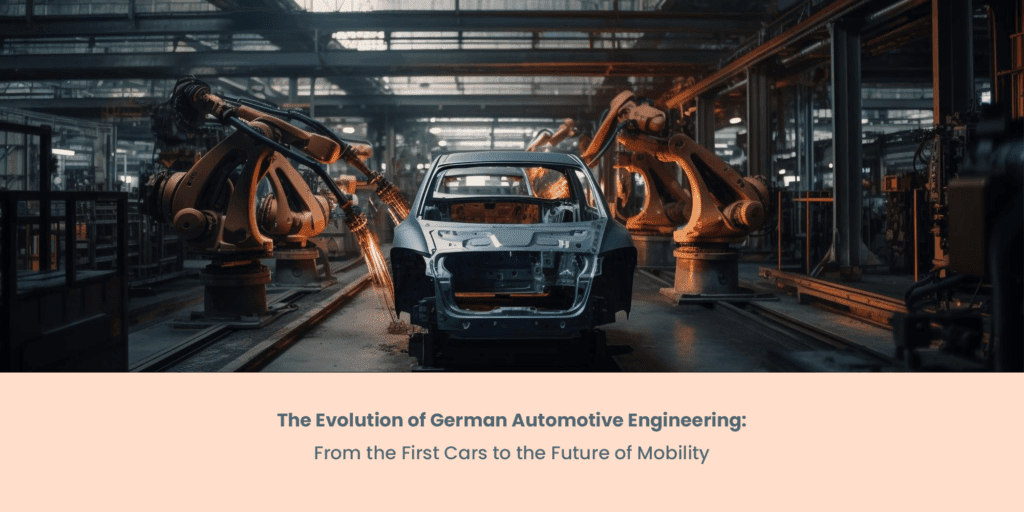German automotive engineering has a storied history dating back to the late 19th century. The country is renowned for its precision, innovation, and quality in the automotive industry. In this blog, we’ll take a journey through time, exploring the evolution of German automotive engineering from its early beginnings to its exciting future in mobility.
I. The Pioneering Years
At the dawn of the automotive age, Germany played a pivotal role in the development of automobiles. In 1886, Karl Benz, a German engineer, introduced the world’s first gasoline-powered car, the Benz Patent-Motorwagen. This revolutionary invention laid the foundation for the modern automotive industry.
II. Rise of Iconic German Brands
The early 20th century witnessed the emergence of iconic German car brands that would become synonymous with quality and performance. Brands like BMW, Mercedes-Benz, and Volkswagen became household names, crafting vehicles that combined luxury with engineering excellence.
III. Engineering Excellence and Precision
German engineers are renowned for their precision and attention to detail. The “German engineering” label is a testament to the commitment to excellence. German cars are celebrated for their robust build quality, meticulous craftsmanship, and high-performance capabilities.
IV. Innovations in Green Mobility
With the growing concern for the environment, Germany has been at the forefront of green mobility solutions. The country has invested heavily in electric and hybrid technologies. Manufacturers like BMW’s “i” series and Volkswagen’s ID series showcase the commitment to sustainable, eco-friendly transportation.
V. Autonomous Driving Technology
Germany has also been a leader in autonomous driving technology. Companies like Bosch and Daimler have made significant strides in developing self-driving cars. The Autobahn, Germany’s famous highway network, has become a testing ground for autonomous vehicles.
VI. Sustainability in Car Design and Manufacturing
Sustainability isn’t limited to alternative powertrains. German automakers are implementing eco-friendly practices in car design and manufacturing. From using recycled materials to reducing energy consumption in factories, sustainability is a key focus.
VII. German Automotive Engineering Universities and Programs
Germany boasts some of the world’s top automotive engineering programs and universities. Institutions like the Technical University of Munich and the University of Stuttgart offer cutting-edge research and education in this field.
VIII. Luxury and Performance: A Comparison of German Car Makers
German automakers are synonymous with luxury and performance. A closer look at brands like Audi, BMW, and Mercedes-Benz reveals their unique approaches to combining luxury with high-performance features.
IX. The Future of German Automotive Engineering
The future of German automotive engineering holds great promise. The industry is embracing electric and autonomous technologies while continuing to uphold the core values of precision and innovation.
The evolution of German automotive engineering is a testament to human innovation and determination. From the invention of the first gasoline-powered car to the development of autonomous and sustainable mobility solutions, Germany has consistently played a pivotal role in shaping the automotive industry. As we move towards an era of electric and autonomous vehicles, one thing remains clear: German engineering will continue to drive the future of mobility.
Also read: – Healthcare for International Students in Germany
